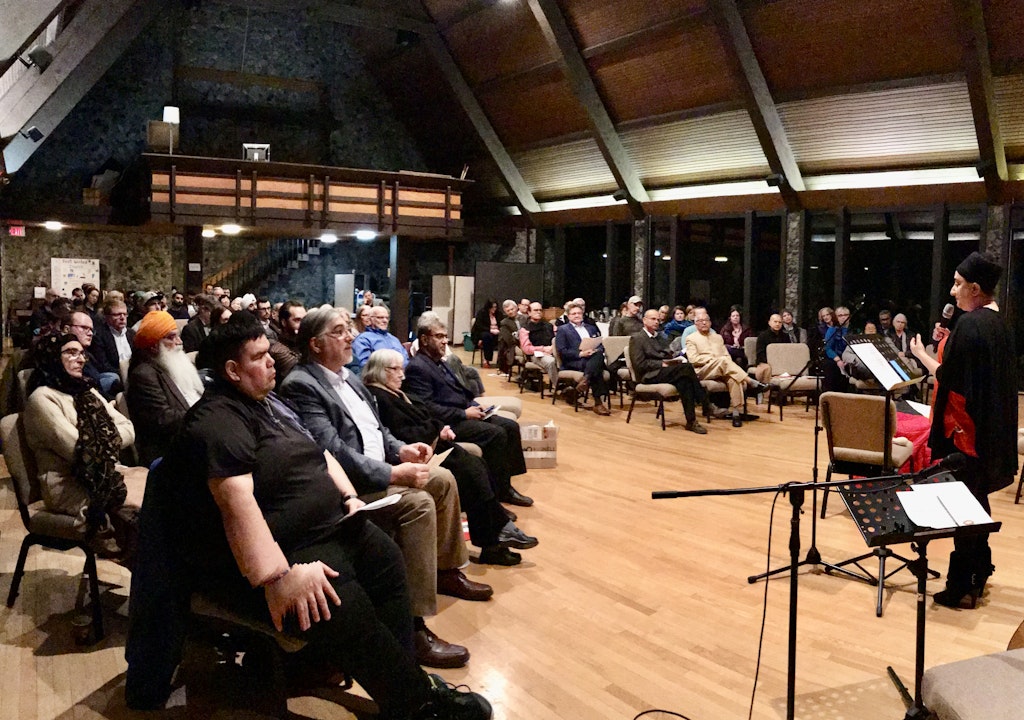The Pentecost, a significant and pivotal event in Christian theology, is often celebrated for its representation of the Holy Spirit’s descent upon Christ’s disciples. This moment heralds the birth of the Christian Church, marking a profound transformation in the spiritual landscape of humanity. By reflecting on the Baha’i perspective concerning the idea of the Pentecost, we engage in a nuanced exploration of the deeper meanings this event holds today, illuminating connections that transcend mere historical contextualization.
To commence this discourse, it is essential to recognize that the Baha’i Faith posits a fundamentally unifying vision of religious truth. Within this framework, the Pentecost does not merely signify the advent of the Holy Spirit but also symbolizes the overarching principle of divine revelation, wherein successive manifestations of God impart messages pertinent to their time. Thus, to the Baha’i, Pentecost is not relegated to a single historical incident; it embodies an ongoing trajectory of spiritual evolution in human consciousness.
At the crux of the Baha’i interpretation lies the recognition that spiritual phenomena, akin to the Pentecost, emerge as pivotal agents of transformation in the collective psyche of humanity. This perspective points towards the inherent potential within each individual to experience personal and collective revitalization. The Baha’i teachings elucidate this by emphasizing the importance of spiritual awakening and the recognition of interrelatedness among all souls. Every manifestation of divine will fosters a deeper understanding of interconnectedness, thereby nurturing a more profound awareness of the unity of humanity.
Furthermore, one cannot overlook the sociocultural ramifications of the event commonly termed Pentecost. As highlighted in Baha’i thought, societal structures often reflect the spiritual currents of their time. The celebrations surrounding the Pentecost engender community, fostering a sense of belonging and kinship. The Baha’i Faith devotes significant attention to the communal aspect of spirituality; it advocates for collective gatherings where individuals can seek inspiration, share insights, and, crucially, cultivate virtues. When viewed through this lens, the Pentecost symbolizes not only a divine gift but also the communal responsibility to harness that gift towards the betterment of the world.
An intriguing dimension of the Pentecost revolves around its themes of communication and language. The outpouring of the Holy Spirit at this juncture empowered the disciples to speak in diverse tongues, enabling them to convey profound spiritual truths across cultural divides. In an age where globalization necessitates intercultural dialogue, the teachings of Baha’u’llah exhort humanity to reject prejudice and embrace the sublime melody of unity that resonates from such experiences. The advent of a new spiritual springtime invites us to communicate across barriers with grace and compassion, reflecting the diverse yet harmonious expressions of divine truth.
Moreover, the Baha’i perspective holds that each religious tradition, including Christianity, contains a pivotal role in conveying the overall narrative of divine guidance. The Pentecost thus serves as a reminder that the divine message is timeless and evolves organically. The Baha’i writings emphasize that, while the vessels of truth may differ, the essence remains constant. This acceptance encourages a healthy respect for the plurality of faith traditions and the shared journey toward enlightened consciousness.
In examining the significance of the Pentecost today, it is paramount to address the spiritual awakening taking place across the globe. Modernity has ushered in unique challenges—ranging from materialism to social fragmentation—that require a profound reexamination of spiritual values. The Baha’i teachings advocate that the essence of the Pentecost is found in the necessity for individuals to cultivate a deeper relationship with the divine and with one another. In light of societal dissonance, the principles of love, justice, and compassion must permeate human endeavor.
To encapsulate the Baha’i viewpoint on the contemporary implications of the Pentecost, one might draw attention to the transformative call for action. Baha’is are urged to translate their spiritual experiences into practical efforts that contribute to social betterment and the advancement of civilization. The outpouring of the Spirit at Pentecost, symbolizing renewal, can inspire a new breed of activism characterized by collective endeavor, unity, and the pursuit of justice. Engaging with the tenets of the Baha’i Faith necessitates mobilizing for positive change—a manifestation of the transformative spirit that Pentecost epitomizes.
Thus, as we traverse the intricate pathways of historical significance, contemporary relevance, and the future trajectory of spiritual awakening, we find that the Pentecost, when viewed through the prism of Baha’i teachings, transcends its immediate occurrence. It beckons humanity towards a higher understanding of spiritual unity and collective responsibility. In recognizing our interconnectedness and nurturing the divine qualities that promise to revitalize the world, we assertively align ourselves with the essence of this profound event. The invitation remains: to embrace the transformative spirit that the Pentecost represents, thereby facilitating an inclusive dialogue among diverse faith traditions and acknowledging the perpetual workings of divine guidance. This is the ultimate celebration of Pentecost in today’s world—a testament to enduring hope and the possibility of universal harmony.
